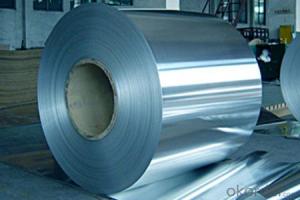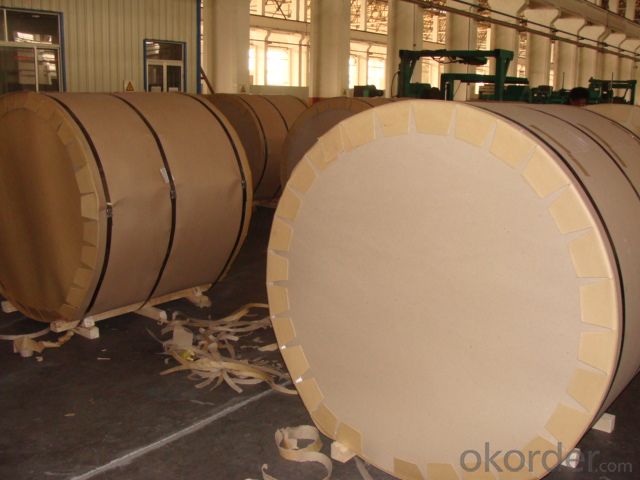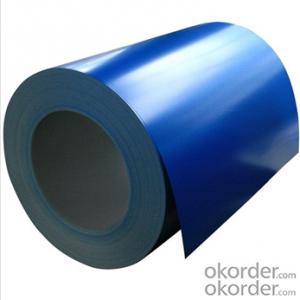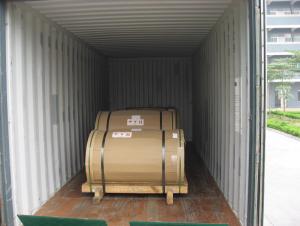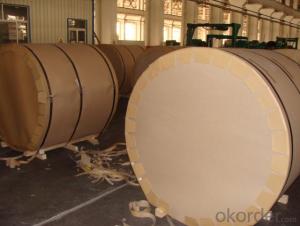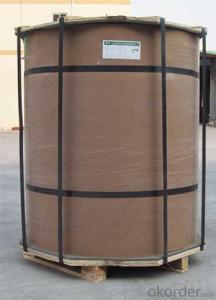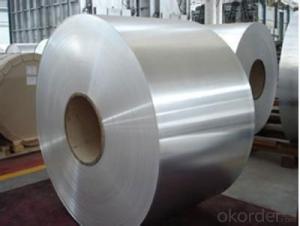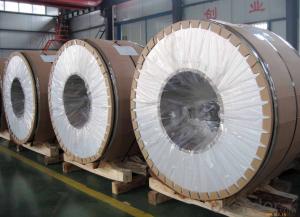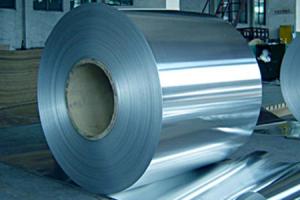Aluminum Zinc Alloy Steel Coil - AA1XXX Aluminum Coils Mill-Finished for Construction
- Loading Port:
- Shanghai
- Payment Terms:
- TT OR LC
- Min Order Qty:
- 3 m.t.
- Supply Capability:
- 10000 m.t./month
OKorder Service Pledge
OKorder Financial Service
You Might Also Like
Specification
1.Structure of AA1xxx Aluminum Coils Mill-Finished Used for Construction Description
AA1xxx Aluminum Coils Mill-Finished Used for Construction is one semi-finished aluminium material. This strip can be rolled down to aluminium foil.The final thickess can be 5-20 microns. Aluminium foil is soft, ductile and with a silver-white luster which can be widely used in a large scare of fields.
2.Main Features of AA1xxx Aluminum Coils Mill-Finished Used for Construction
1)excellent quality,good credit
2)competitive price,comfortable service
3)Samples for free
4)fast delivery,small order accepted
5)Good rust resistance
6)clean, flat, no wrinkle, no scratch, oil free.
3.AA1xxx Aluminum Coils Mill-Finished Used for Construction Images
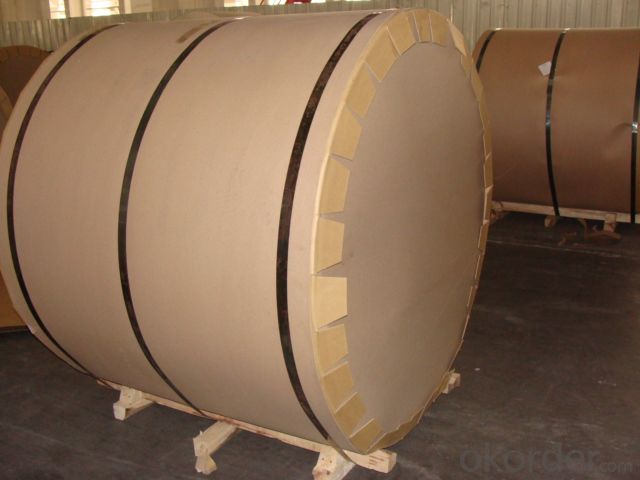
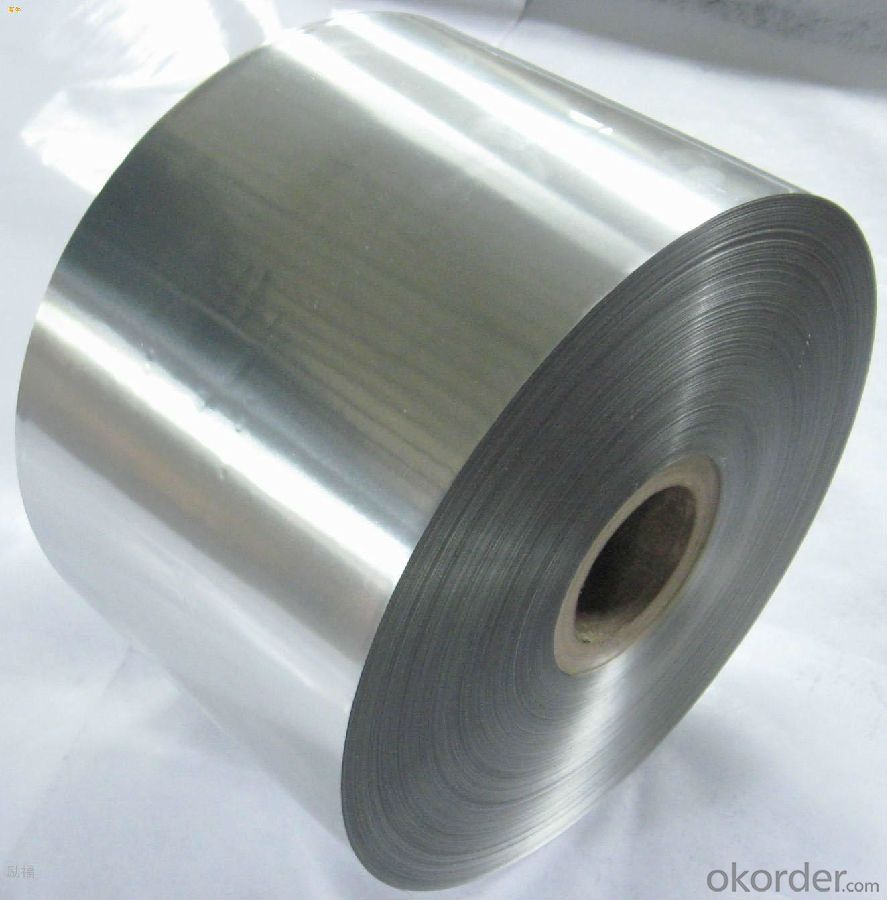
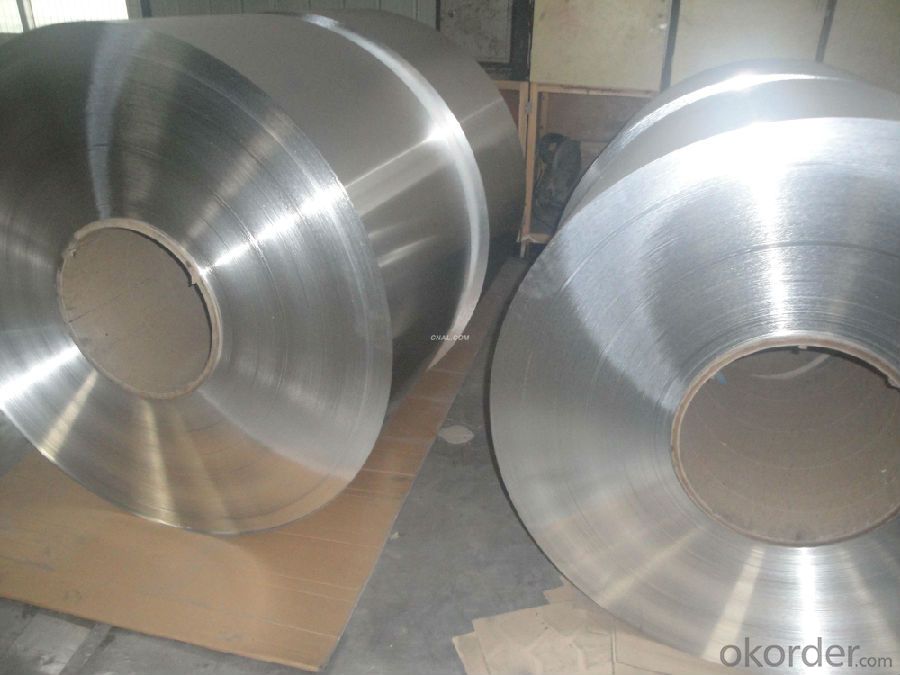
4.AA1xxx Aluminum Coils Mill-Finished Used for Construction Specification
Alloy | AA1xxx (AA1050, AA1060, AA1070, AA1100 etc. |
Temper | H14, H16, H18, H22, H24, H26, H32, O/F |
Thickness | 0.2mm -- 100mm |
Width | 30mm -- 1700mm |
Standard | GB/T 3880-2006,EN,ASTM,JIS |
5. FAQ of AA1xxx Aluminum Coils Mill-Finished Used for Construction
What is the quality standard?
---Usually our standard is GB3880-2006
What is the largest width?
---It is 2300mm
What is the MOQ?
---Usually we can accept 80 tons.
- Q: What are the different edge profiles available for aluminum coils?
- There are several different edge profiles available for aluminum coils, including square edge, round edge, and beveled edge. These profiles provide different levels of protection and aesthetics, allowing for customization based on specific application requirements.
- Q: How are aluminum coils used in the production of transportation vehicles?
- Aluminum coils are used in the production of transportation vehicles primarily for their lightweight and durable properties. These coils are typically used to manufacture various components, such as body panels, frames, and engine parts. The use of aluminum helps reduce the overall weight of the vehicle, enhancing fuel efficiency and performance. Additionally, aluminum's corrosion resistance makes it ideal for withstanding harsh weather conditions and extending the lifespan of the vehicle.
- Q: Can aluminum coils be painted or coated after installation?
- Yes, aluminum coils can be painted or coated after installation. Aluminum is a versatile material that can be easily painted or coated to enhance its appearance or provide additional protection. Painting or coating aluminum coils after installation can help prevent corrosion, improve durability, and provide a customized finish. The type of paint or coating used will depend on the specific requirements and desired outcome. It is important to ensure that the aluminum surface is properly cleaned and prepared before applying any paint or coating to ensure adhesion and longevity.
- Q: Are aluminum coils available in custom sizes?
- Yes, aluminum coils are available in custom sizes. Aluminum coils are versatile and can be manufactured to meet specific size requirements. This flexibility allows for a wide range of applications across various industries. Whether it's for HVAC systems, transportation, construction, or other purposes, aluminum coils can be custom-made to fit the specific needs of a project. Custom-sized aluminum coils ensure a perfect fit and optimal performance, offering greater efficiency and cost-effectiveness.
- Q: Can aluminum coils be used in kitchen appliances?
- Kitchen appliances can indeed utilize aluminum coils. Due to its remarkable thermal conductivity and resistance to corrosion, aluminum is extensively employed in the production of kitchen appliances. It finds frequent application in refrigerators, air conditioners, and other devices that necessitate efficient heat transfer. Lightweight and enduring, aluminum coils effectively disperse heat, rendering them ideal for a wide array of kitchen appliances.
- Q: How are aluminum coils inspected for quality control?
- Aluminum coils are inspected for quality control through various methods including visual inspection, dimensional checks, and non-destructive testing techniques such as ultrasonic testing, eddy current testing, and X-ray inspection. These inspections help to ensure that the coils meet the required specifications, have no visible defects, and possess the desired mechanical properties before they are used in various applications.
- Q: What are the various applications of aluminum coil in the construction industry?
- <p>Aluminum coil is widely used in construction for various purposes due to its lightweight, durability, and corrosion resistance. It is commonly used in roofing and siding materials for both residential and commercial buildings, providing a long-lasting and low-maintenance option. Aluminum coil is also utilized in the manufacturing of window frames and doors, offering thermal efficiency and strength. Furthermore, it is used in the production of heat exchangers, solar panels, and electrical wiring due to its excellent conductivity. Additionally, aluminum coil is employed in the fabrication of scaffolding and structural components, contributing to the overall stability and safety of construction projects.</p>
- Q: wikipedia says welding aluminum by means of stick welding is possible but i have always been told TIG is the only way to weld aluminum. what do i need in order to stick weld aluminum? BTW i have a Lincoln Electric AC 225 Stick Welder
- you can weld aluminum with stick, tig, or mig processes. We use mig to weld aluminum bus sections for power houses. I agree that stick is a difficult way to weld aluminum and the results are often less than desirable. Look into renting a mig machine and getting the proper gas and wire.
- Q: Aluminum roll width 750mm, single layer thickness 6.5mm, diameter 400mm., how to calculate the weight of the aluminum roll?
- You can use the outside diameter, the inner diameter and the width to get the volume. You know the density and volume, and then you can find the weight naturally
- Q: 11 g of aluminum at 200 C and 19 g of copper are dropped into 55 cm^3 of ethyl alcohol at 15 C. The temperature quickly comes to 24 C. What was the initial temperature of the copper? (answer in C) Express your answer using two significant figures.
- Quantity of heat given by aluminium = mc θ = 0.011* 913*(200 - 24) = 1767.6 J. . Quantity of heat given by copper = mc θ = 0.019* 385*(T - 24) = 7.315 T -175.56 J. . Mass of ethyl alcohol = volume * density = 0.000055 m^3 *789 = 0.043395 kg. Quantity of heat gained by ethyl = mc θ = 0.043395 * 2500*(24 - 15) = 976.3875 J heat lost.= Heat gained 1767.6 + 7.315 T -175.56 = 976.39 7.315 T = -615.65 T = -84.17 ?C This shows that copper also gains heat. ======================================...
Send your message to us
Aluminum Zinc Alloy Steel Coil - AA1XXX Aluminum Coils Mill-Finished for Construction
- Loading Port:
- Shanghai
- Payment Terms:
- TT OR LC
- Min Order Qty:
- 3 m.t.
- Supply Capability:
- 10000 m.t./month
OKorder Service Pledge
OKorder Financial Service
Similar products
Hot products
Hot Searches
Related keywords
